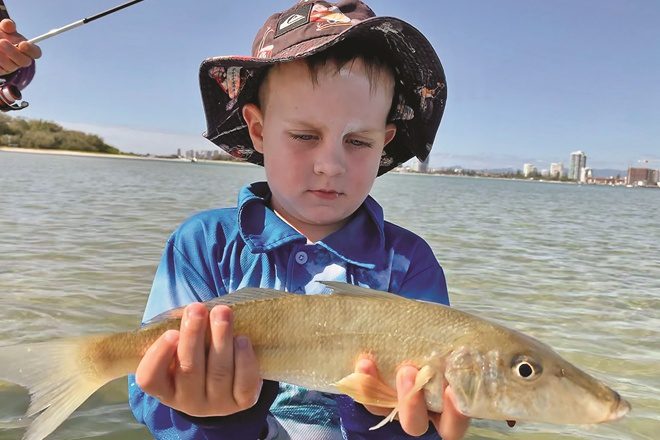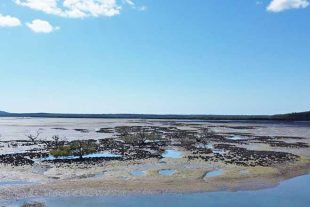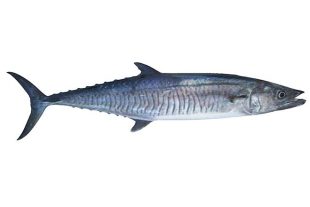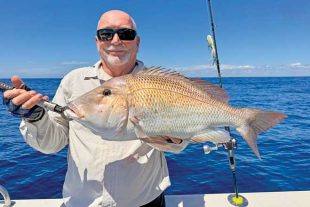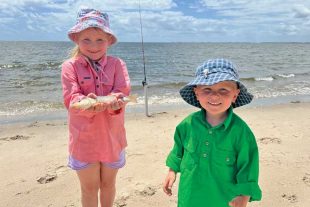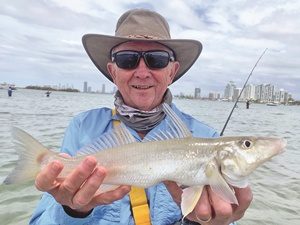
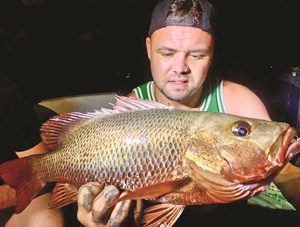
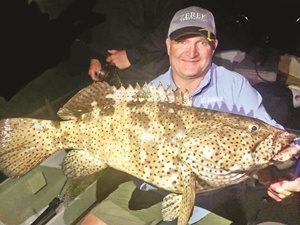
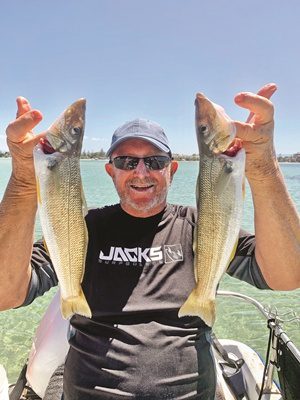
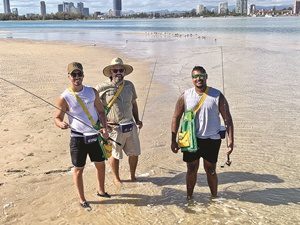
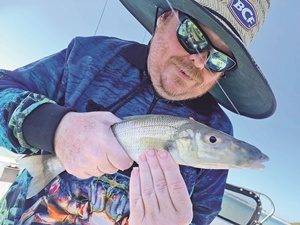
I HOPE you’re having or have had a bit of time off to enjoy Queensland’s beautiful bush and beach, the best place in the world right now. We have been extremely busy with our local estuary charters, hosting many anglers new to the sport who are keen to learn more, and locals wanting to enjoy a day out and catch a feed.
This month, I thought I would give a few tips for people wanting to escape the crowds and noise on the water. If you get out there early in the morning or late in the afternoon, it is still possible to have a little quiet fishing time on the Gold Coast rivers and creeks. Escape crowds
But any time after 8am at places such as the Gold Coast Broadwater and you’ll find a lot of wash and annoying sounds emanating from fun-seeking watercraft. I touched on this subject in a recent article and thought to continue it further.
As mentioned previously, 6-knot zones can be a good place to hide with the family and still catch fish, but where else? The southern Broadwater has large areas of sand flats that are all home to healthy stocks of flathead, whiting, bream, tarwhine, flounder, blue swimmer and mud crabs.
To keep it simple, fish these areas on top of the banks at high tide, off the edges at low tide, and in the middle in between. This is when thinking like a fish can result in a productive session.Escape crowds
The highest point on a sand bank is out of reach to fish when the tide is low, and the bank is dry. The first thing the fish do when the run-in tide laps over the shallow sand is to swim into the shallows to check what food they might find.Escape crowds
This could be melon holes dug up by stingrays that have exposed yabby chambers or crustaceans and baitfish that are seeking refuge from predators. I have often caught whiting measuring over 40cm in water that is ankle to shin deep and have also seen many 80cm plus flathead.
To fish these areas successfully use the local bait like yabbies. You can pump them at low tide then keep them cool ready to use later. If you are chasing flathead, try soft plastics on a 1/4oz jig head or Samaki 70mm soft vibes.Escape crowds
Cast them with the wind then hop them along the bottom. Flathead will often feel like a snag when you lift the rod to hop, so be ready to strike and set the hook. Another area worth looking at during busy times on the water is in the canals of the Gold Coast.
One look at Google Earth – a good way to study Broadwater sand banks too – and you’ll notice a myriad of such areas. As for the sand banks, the canals often fish well on a run-in tide. On a run-out tide, fish the mouths of these places.Escape crowds
They can be fished well with small boats and kayaks, as can the banks. Another species that will be very active this month is mangrove jack. During the silly season, they are best targeted at night or lower light periods, with live baits and big soft plastics cast as close as possible to heavy structure.
To book on a charter with myself or Brad, or if you have any fishing related questions, SMS 0432 990 302, email fishingwithclint@gmail.com, or find us on Facebook at Brad Smith Fishing Charters.Escape crowds
 Bush ‘n Beach Fishing Magazine Location reports & tips for fishing, boating, camping, kayaking, 4WDing in Queensland and Northern NSW
Bush ‘n Beach Fishing Magazine Location reports & tips for fishing, boating, camping, kayaking, 4WDing in Queensland and Northern NSW

